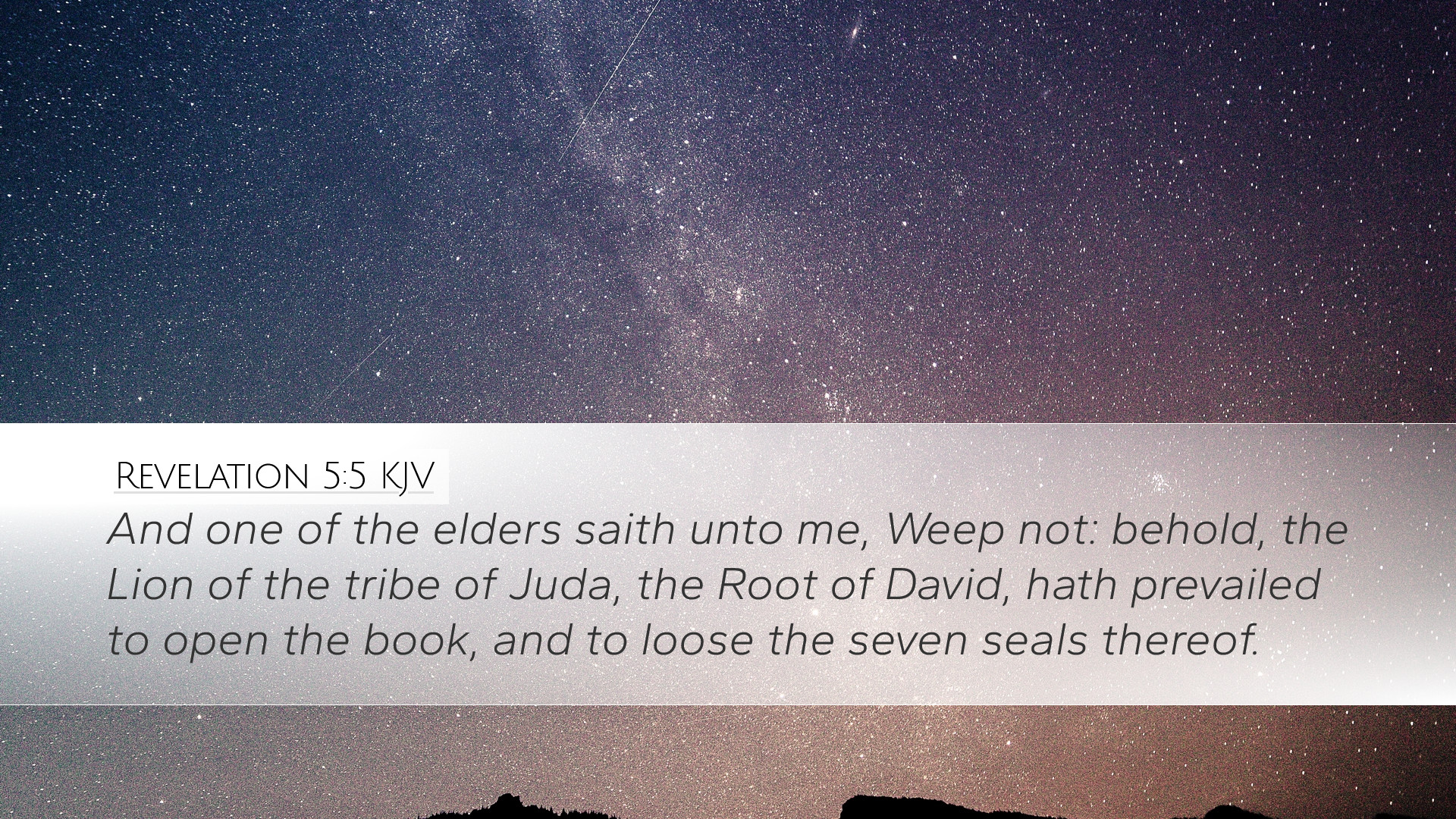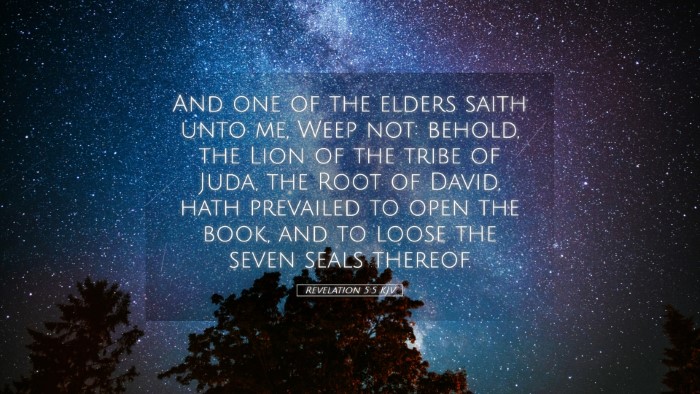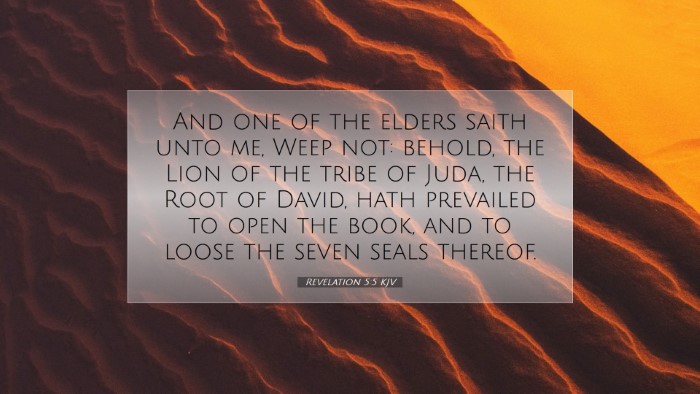Commentary on Revelation 5:5
Revelation 5:5 states: "And one of the elders said unto me, Weep not: behold, the Lion of the tribe of Juda, the Root of David, hath prevailed to open the book, and to loose the seven seals thereof."
This verse introduces a significant transition in the heavenly vision presented to John and carries profound theological implications. Three key elements emerge in this verse which are crucial for understanding the context and meaning: the assurance from the elder, the identity of the Lion of Judah, and the importance of the sealed book.
1. The Assurance from the Elder
The elder's declaration, "Weep not," serves as both a comforting and authoritative proclamation. Matthew Henry notes that the elder's emphasis on not weeping highlights the significance of hope amidst despair. John was initially overwhelmed by the search for one worthy to open the seals and bring about God's plan for redemption. The elder's words remind us of God's sovereign control over history, calling believers to trust in divine providence. This element underscores the encouragement granted to those facing trials and tribulations, imparting a message of hope and assurance of God’s ultimate victory.
2. The Lion of the Tribe of Judah
The identity of the Lion of the tribe of Judah is one of immense theological significance. Albert Barnes explains that this title is rooted in Genesis 49:9-10, where Jacob blesses his son Judah, assigning him a royal status. This royal lineage points to the messianic prophecy that finds its fulfillment in Christ. Here, we see a juxtaposition of majesty and power embodied in the metaphor of a lion, representing strength, authority, and kingship.
Adam Clarke emphasizes the connection to the "Root of David," suggesting a profound mystery regarding Christ’s dual nature — his eternal existence as God and his incarnation as a descendant of David. This notation invites deeper exploration into Christ's divine and human natures, illustrating how he embodies the hope of Israel and the fulfillment of God’s redemptive promises.
3. The Significance of the Sealed Book
The sealed book symbolizes God’s plan for humanity and the unfolding of His eschatological purposes. The number "seven" refers to completeness, suggesting that the unveiling of the scroll will reveal the fullness of God’s redemptive history. Matthew Henry points out that the act of opening the scroll not only initiates judgment upon the wicked but also a vindication and reward for the faithful. The seals represent the unfolding of God’s justice and mercy within history, with the Lion of Judah as the only one found worthy to enact this plan.
Theological Reflections
-
Christ's Authority: Revelation 5:5 elevates Christ as the central figure in God's redemptive narrative, affirmed as deserving of worship and authority to enact God’s will.
-
The Nature of Worship: The response to this revelation of the Lion of Judah challenges believers to contemplate their own acts of worship, aligning them with the recognition of Christ's sovereign role.
-
Hope in Desperation: As the elder reassures John, believers today are similarly encouraged to find hope in Christ amidst confusing or desperate situations.
-
Messianic Fulfillment: This passage invites a connection with the Old Testament prophecies, urging scholars and pastors to explore how Revelation builds upon the biblical narrative leading to the culmination in Christ.
-
Final Judgment and Redemption: The themes of judgment and redemptive history in this verse serve as a reminder of the overarching narrative of Scripture where God seeks to redeem humanity through Christ.
-
Christ’s Dual Nature: Understanding both the lion (power) and the root (humility) of David can enhance discussions on Christology and soteriology.
-
The Role of Elders: This passage indicates the role of spiritual leaders in offering guidance and comfort to those struggling within their faith journey.
-
The Assurance of Victory: The victory of Christ is central not just for individual believers but for the Church as His body—a powerful reminder of the mission to spread the Gospel.
-
Anticipation of the Apocalypse: The opening of the seals is a catalyst for the apocalyptic events that follow, encouraging a deeper understanding of eschatology.
Conclusion
In conclusion, Revelation 5:5 serves as a pivotal anchor in the narrative of redemption through Christ. By merging insights from various public domain commentaries, we see how the Lion of Judah's role encapsulates the authority, power, and fulfillment of God's promises. Pastors, students, theologians, and scholars are encouraged to explore the multi-faceted dimensions of this verse, understanding both its immediate context and its broader implications within the whole of Scripture.


